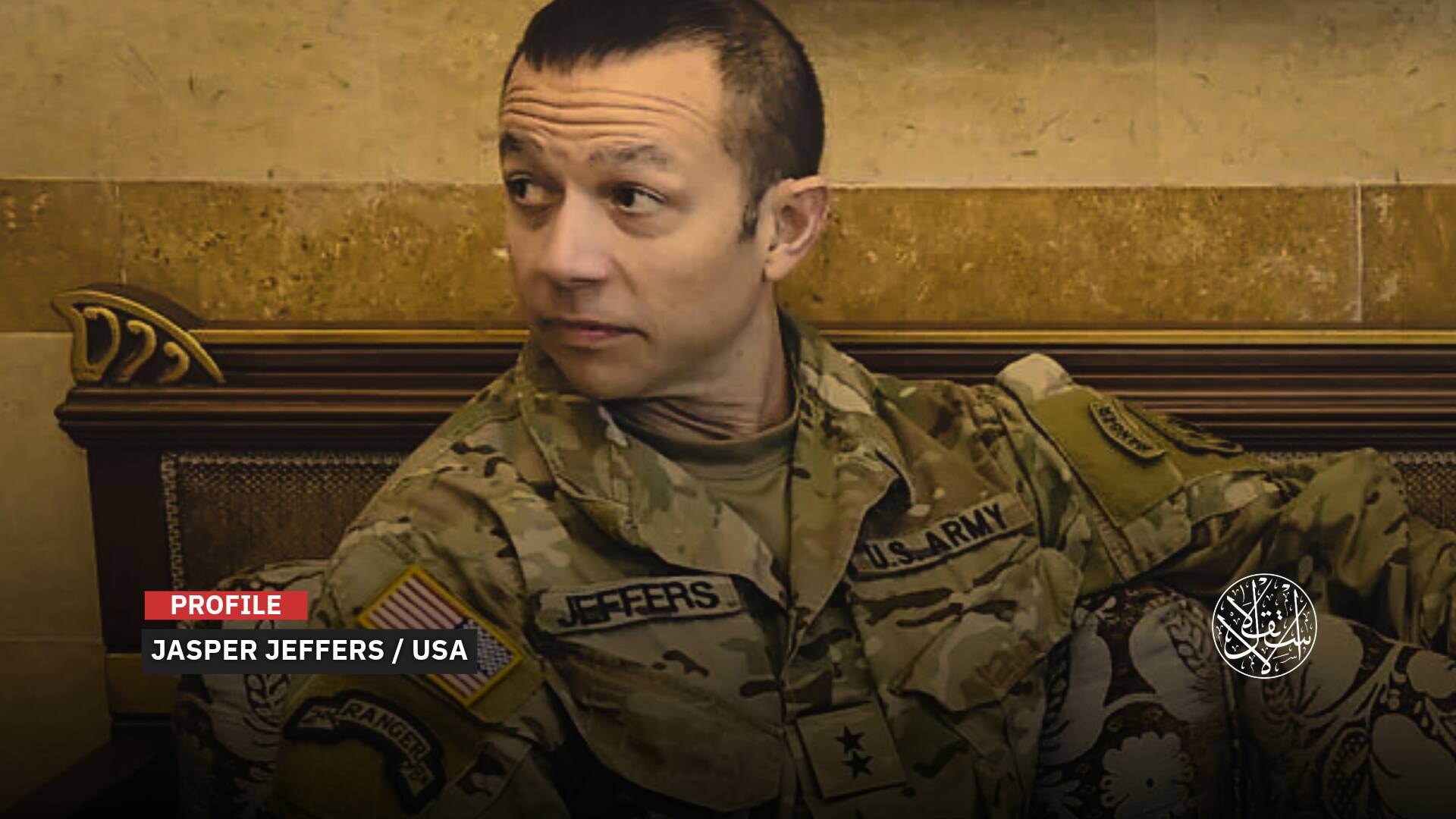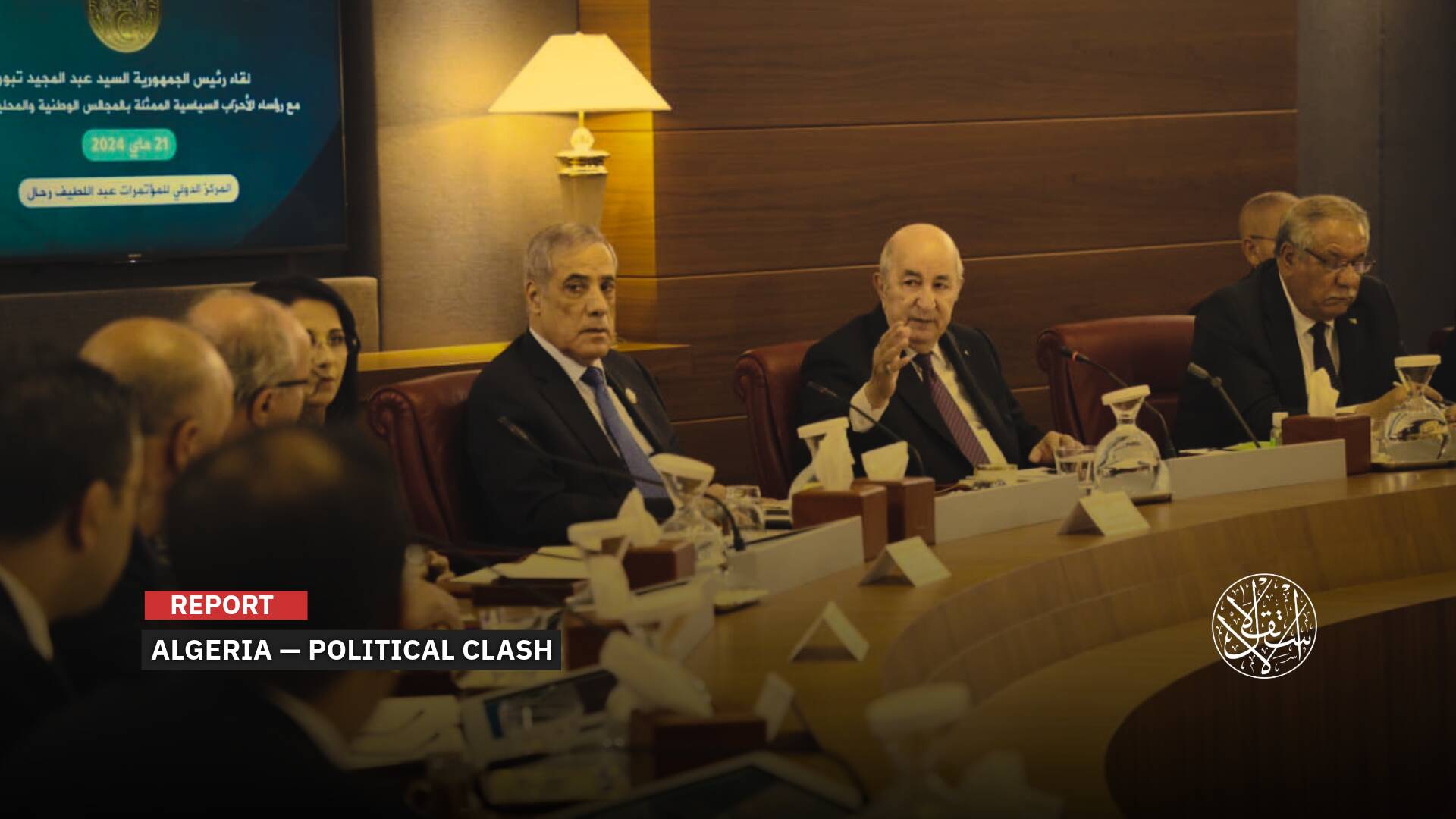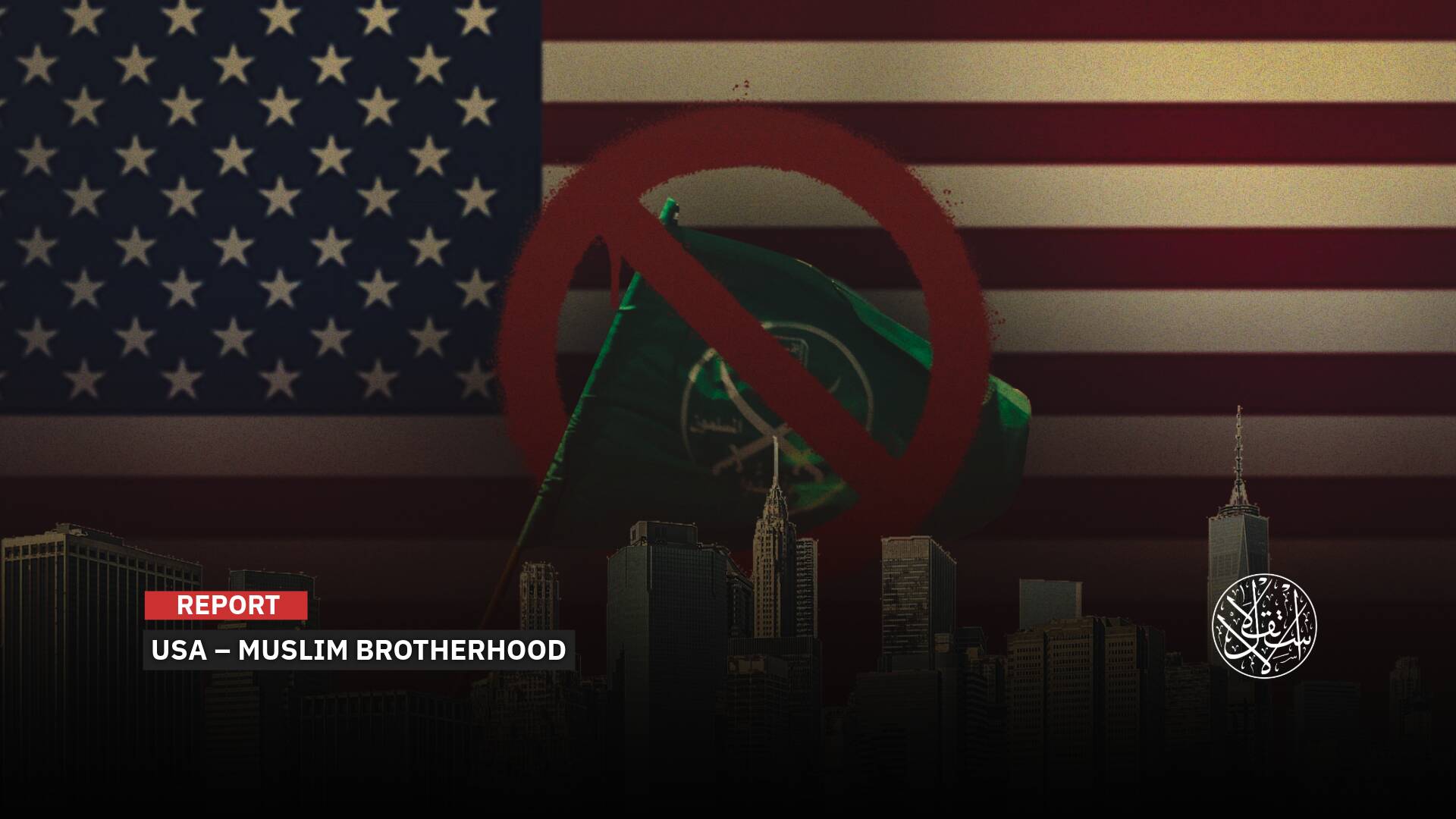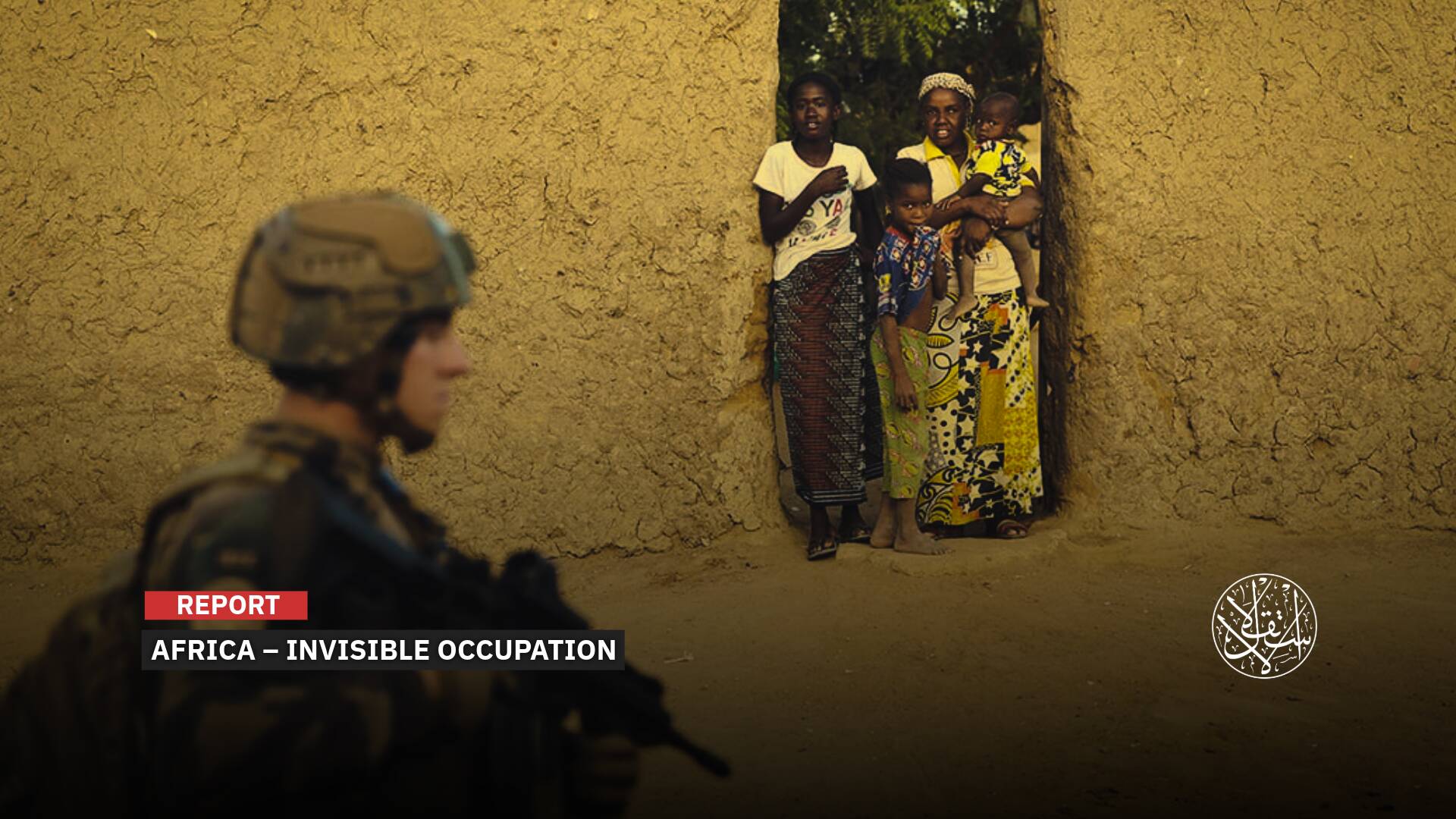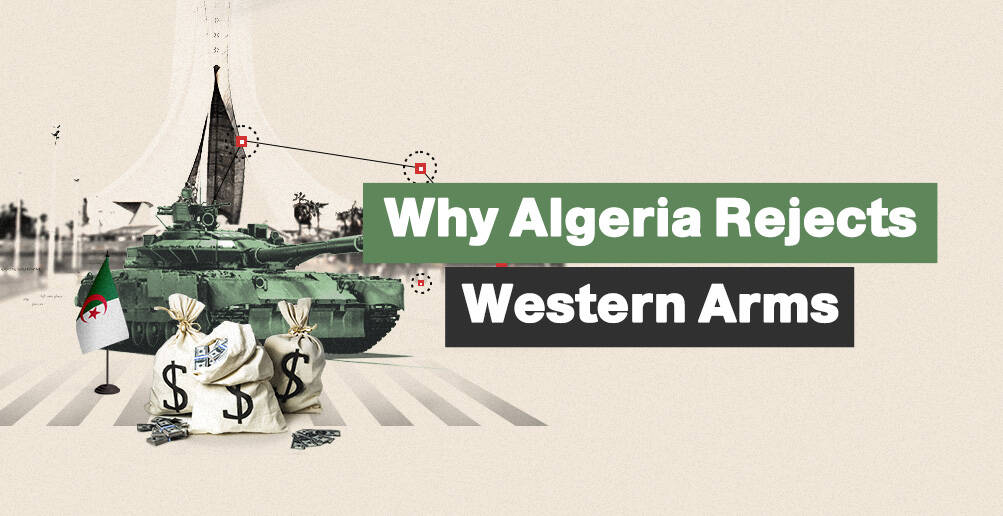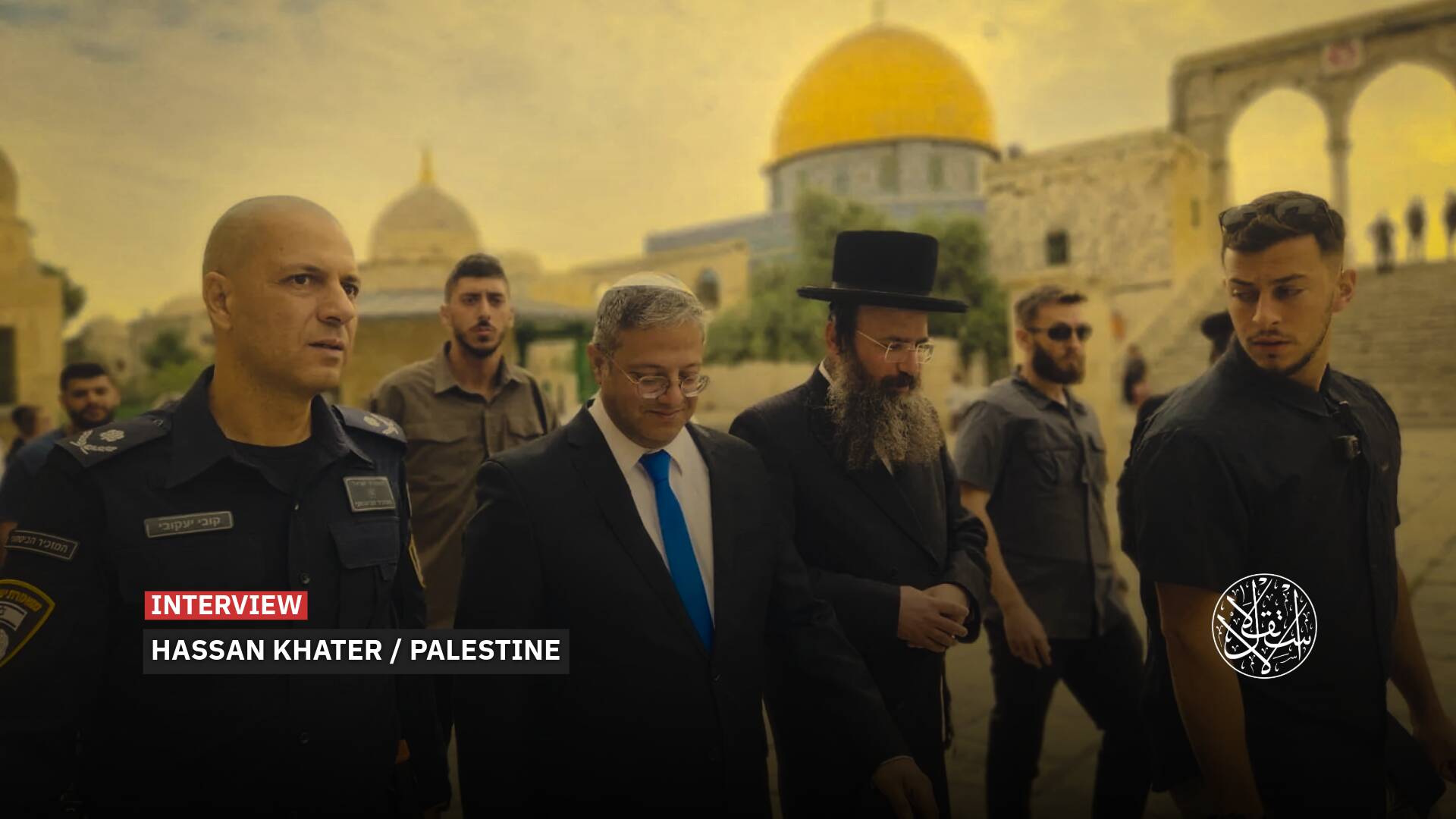Iran's Strategic Role in Lebanon Amid U.S. Ceasefire Proposals

Larijani's visit is tied to Iran's talks with the Americans, with part of it also related to Lebanon.
Since Hezbollah joined the Gaza front on October 8, 2023, Iran has significantly amplified its diplomatic presence in Beirut, coinciding with any proposals for a ceasefire with “Israel.”
Iran’s presence was further reflected in a visit to Beirut by Ali Larijani, the advisor to Iran’s Supreme Leader Ali Khamenei, on November 15, 2024.
This was the third visit by an Iranian official to Lebanon since “Israel” launched an extensive assault on the country on September 27, 2024, following trips by Foreign Minister Abbas Araghchi and Parliament Speaker Mohammad-Bagher Ghalibaf.
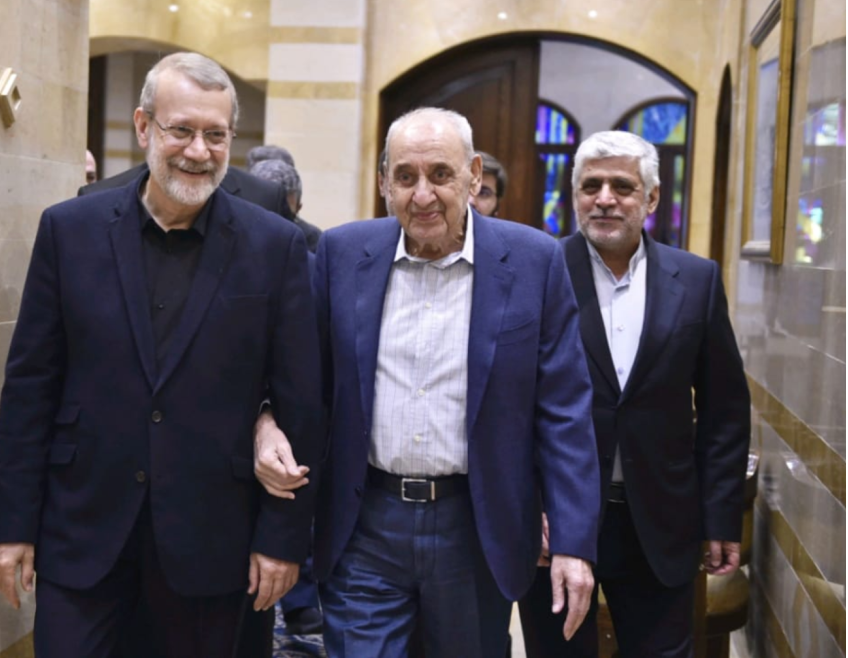
Khamenei’s Message
Larijani met with Lebanese Prime Minister Najib Mikati and Parliament Speaker Nabih Berri in Beirut, the latter of whom leads the Shiite Amal Movement and is a close ally of Hezbollah.
Berri has been negotiating on behalf of Hezbollah regarding ways to end the war.
In a press conference following his meeting with Berri, Larijani stated that Iran seeks to resolve the crises in Lebanon and has no intention of “sabotag[ing] any initiative or agreement” aimed at halting Israeli aggression.
Responding to a question about whether the visit was intended to sabotage the U.S. proposal on Lebanon, Larijani said, “We are not here to sabotage anything. We seek to resolve Lebanon’s problems.” He added “The real disruptor is (Israeli Prime Minister Benjamin) Netanyahu and his allies. It's crucial to distinguish between friends and foes.”
On the implementation of UN Security Council Resolution 1701, Larijani said, "We support any decision made by Lebanon’s resistance (Hezbollah) and government."
This resolution calls for Israeli full withdrawal from Lebanon, the strengthening of the United Nations Interim Force in Lebanon (UNIFIL), and the restriction of military presence in the border region to the Lebanese army and international forces.
Since October 2023, over 3,400 people have been killed in Lebanon, more than 14,400 injured, and over a million displaced due to Israeli attacks, according to Lebanese health authorities.
“Israel” launched a ground incursion and advanced into several villages in southern Lebanon in early October 2024.
Meanwhile, on November 15, 2024, Berri announced receiving a U.S. proposal for a ceasefire amid the ongoing Israeli assault, noting that discussions about its details were still ongoing.
In statements reported by the national news agency, Berri denied that the proposal “includes any kind of freedom of movement for the Israeli army in Lebanon.”
Berri said that the Americans should know that the proposal is “unacceptable” and “non-negotiable” in principle.
“There can be no undermining of our sovereignty,” he added.
Berri also dismissed the claims that the proposal includes the deployment of NATO or any other foreign forces in Lebanon.
He revealed that the American proposal includes a clause unacceptable to Lebanon, which is the establishment of a monitoring committee for implementing Resolution 1701 with the participation of several Western countries.
“We are discussing an alternative mechanism, but Lebanon will not proceed with it. There is already an established mechanism that could be activated,” Berri said.

Initiatives and Amendments
Larijani, an advisor to Iran’s Supreme Leader, visited Damascus to meet with Syrian President Bashar al-Assad before heading to neighboring country, Lebanon.
His arrival in Beirut coincided with reports from Western media suggesting that “Israel” was awaiting a response from Lebanon within days regarding a U.S.-backed ceasefire proposal.
On November 15, 2024, an unnamed Israeli official said, "Hezbollah will respond to the U.S. plan in the coming days."
Media reports indicated that U.S. Ambassador to Lebanon, Lisa Johnson, presented the ceasefire proposal to Beirut, although details of the proposal were not disclosed.
The Israeli radio highlighted key points from the American proposal, which had been previously released.
The proposal includes an acknowledgment by both “Israel” and Lebanon of the importance of UN Security Council Resolution 1701, while maintaining their right to self-defense if necessary.
Resolution 1701, adopted on August 11, 2006, demands an end to hostilities between Lebanon and “Israel,” the establishment of a demilitarized zone between the "blue line" (the de facto border) and the Litani River, allowing only the Lebanese army and the United Nations Interim Force in Lebanon (UNIFIL) to possess weapons and military equipment in the area.
The proposal also calls for preventing the rearming of non-state groups in Lebanon in line with Resolution 1701.
It emphasizes that any arms sales or production within Lebanon will be under the supervision of the Lebanese government.
The proposal further stipulates that the Beirut government will grant security forces the necessary powers to implement the resolution, monitor the import of weapons across the Lebanese border, and oversee and dismantle any unrecognized weapons facilities or infrastructure violating the terms of the agreement.
In return, the U.S. proposal requires “Israel” to withdraw its forces from southern Lebanon within seven days, with the Lebanese army replacing them.
The United States and other unspecified countries will oversee the withdrawal process.
At a later date, Israel is expected to deploy forces along the border and crossings.
The plan also stipulates that within 60 days of signing the agreement, Lebanon must disarm any non-state military groups in the southern part of the country.
The radio stated that the U.S. plan also stipulates that within 60 days of signing the agreement, Lebanon must disarm any non-governmental military groups in southern Lebanon.
According to Israeli media, Washington had recently proposed a plan requiring Hezbollah to withdraw to the north of the Litani River, with the Lebanese army deploying in the south.
The proposal also calls for preventing Hezbollah from repositioning its forces in the region and halting the transfer of weapons from Syria to the group.
However, “Israel” insists on targeting Hezbollah in Lebanon even after any agreement, a stance that Beirut has strongly rejected.
Hezbollah has confirmed that any indirect negotiations with “Israel” must be predicated on two conditions: a ceasefire and the full, undiminished protection of Lebanese sovereignty.
According to observers, it appears that Iran, which founded Hezbollah in the 1980s and has long supported it with financial and military aid, is uneasy about the U.S. initiative.
This is especially evident as “Israel” aims to include additional provisions to Resolution 1701 if a ceasefire is agreed upon.
This would involve monitoring Beirut's Rafic Hariri Airport, border crossings with Syria, and Hezbollah's remaining weapons, through a commission including the U.S., France, Britain, and Germany.
Iran sees this as an attempt to fully encircle Hezbollah's influence in Lebanon.

Consolidating Influence
In this context, according to Al-Estiklal, Lebanese analyst Ali Hamade argued that "Larijani, the closest to Khamenei, came to Lebanon to deliver a message to Nabih Berri that they are present in the country and to affirm that Hezbollah's structure is now under Iran's control."
"Larijani's visit is tied to the negotiation process that may soon begin between the Americans and Iranians, with part of it concerning Lebanon," he added.
Meanwhile, informed sources revealed to Janoubia that "Larijani came to rally the Shiite duo (Hezbollah – Amal Movement), in light of Khamenei’s instructions to Iranian proxies to escalate in the region, while awaiting Donald Trump to take office in the White House on January 20, 2025.”
The sources indicate that "the Iranian side discussed with Berri Resolution 1701 and the necessity of being firm in any settlement reached before Trump takes power, as it would be temporary and circumstantial."
Ali Al-Amin, editor-in-chief of Janoubia, believes that "Hezbollah, backed by Iran, will reject the U.S. proposal because the implementation of Resolution 1701 would mean preventing the party's military presence south of the Litani River. The proposal is, in essence, ‘1701 Plus’, with additional provisions that favor Israel."
In a report published on November 15, 2024, Al-Amin added, "The arrangement of the area south of the Litani, ensuring it remains free of any threat to Israel, is nearly achieved."
"What Israeli Prime Minister Benjamin Netanyahu needs most is to ensure there is no future threat, whether Hezbollah continues to acquire weapons—specifically via Syria—or ensuring there are no Hezbollah weapons in the Bekaa Valley and the Syrian Qalamoun region on the Lebanese border that could pose a threat to Israel."
"The key element of the U.S. proposal is a shift towards Lebanon entering a phase of internationalization through the implementation of Resolution 1701," he noted.
This, he explained, stems from Washington’s refusal to accept Nabih Berri’s personal guarantee for implementing the resolution, opting instead for U.S., French, British, and Arab guarantees.
According to him, these countries, through a direct military presence, would act as guarantors for both Lebanon and “Israel” to enforce the international resolution.
"This would mark the end of an era that began with the April 1996 understanding, followed by the liberation of southern Lebanon in 2000 and the 2006 war, where Syria, Iran, and Hezbollah played a central role in any ceasefire agreements between the party and Israel," Al-Amin concluded.
Some observers believe Larijani’s visit to Beirut was also a signal of Iran’s rejection of integrating UN Security Council Resolution 1559 into the framework of the proposed solution for Lebanon.
Resolution 1559, adopted in 2004, calls for the withdrawal of Syrian military and security forces from Lebanon and the disbanding of all "Lebanese and non-Lebanese militias," while supporting the extension of the Lebanese government's authority over all its territory.
Sources
- Iran Supports Lebanon in Ceasefire Talks, Seeks to 'Resolve Issues' [Arabic]
- An Israeli 'Grinder' That Fails to Halt the Fighting... and Hezbollah 'Neither Accepts Nor Rejects'! [Arabic]
- Larijani in Beirut: "We Are Not Seeking to Derail Any Efforts, But We Want to See a Solution for Lebanon's Situation. [Arabic]
- Israel awaits Lebanese response to US-backed cease-fire proposal: Media


